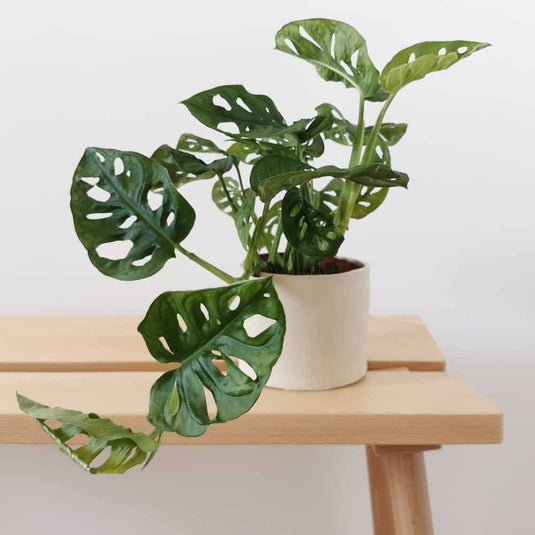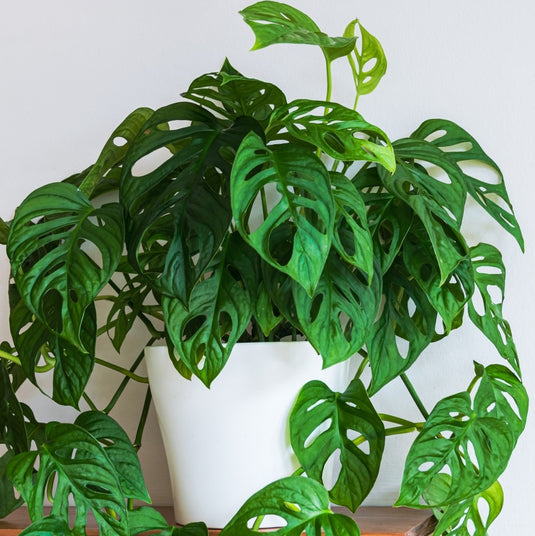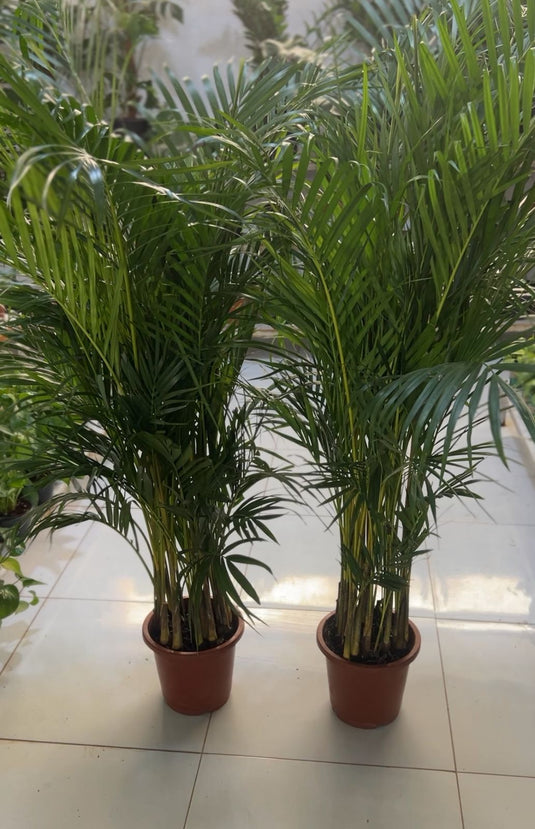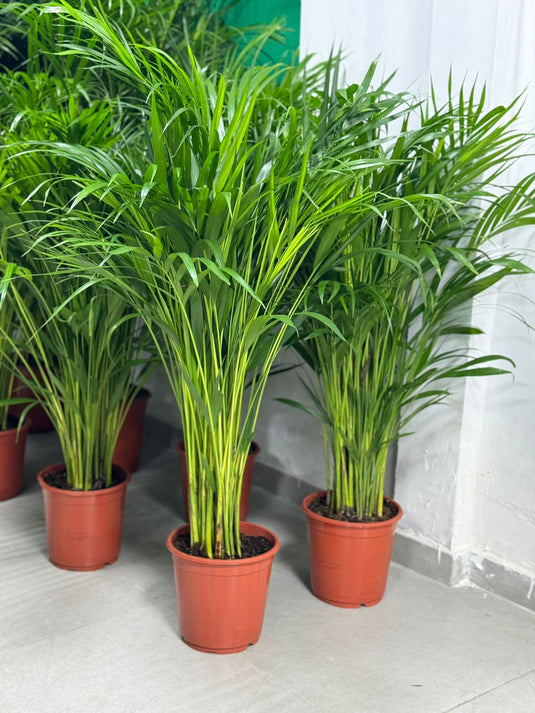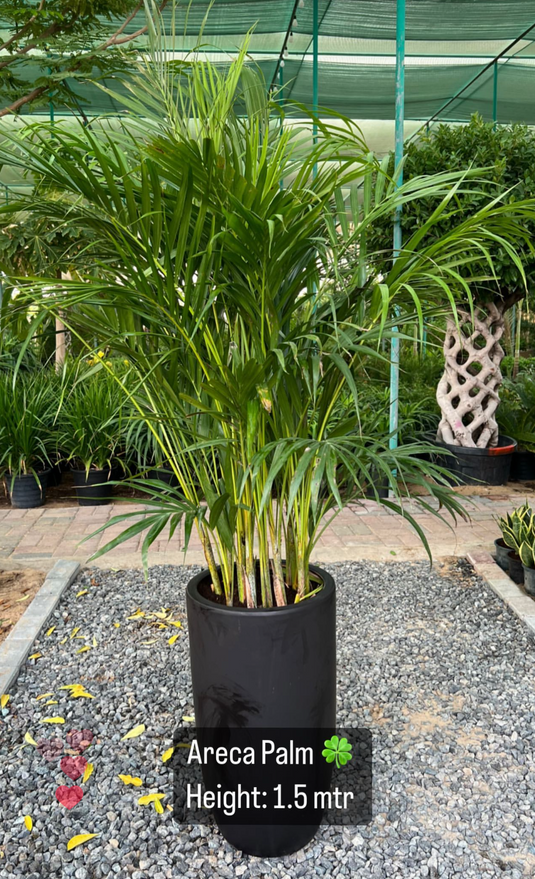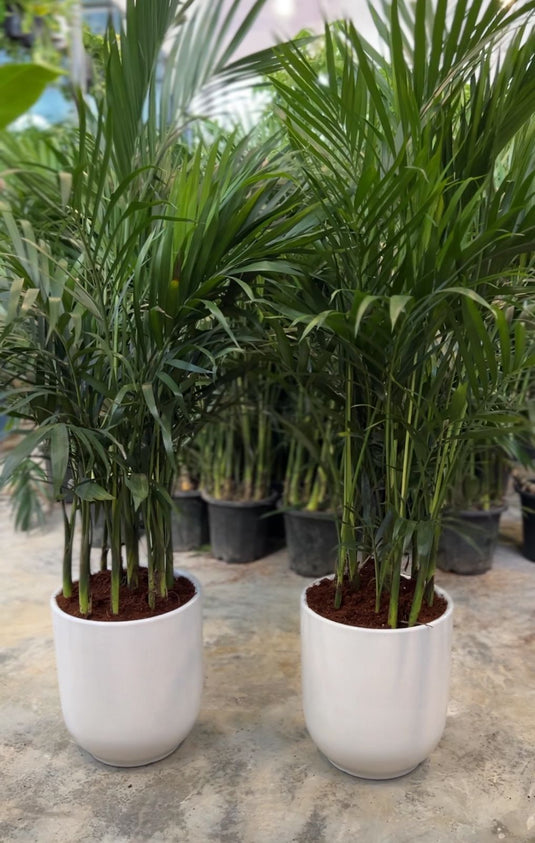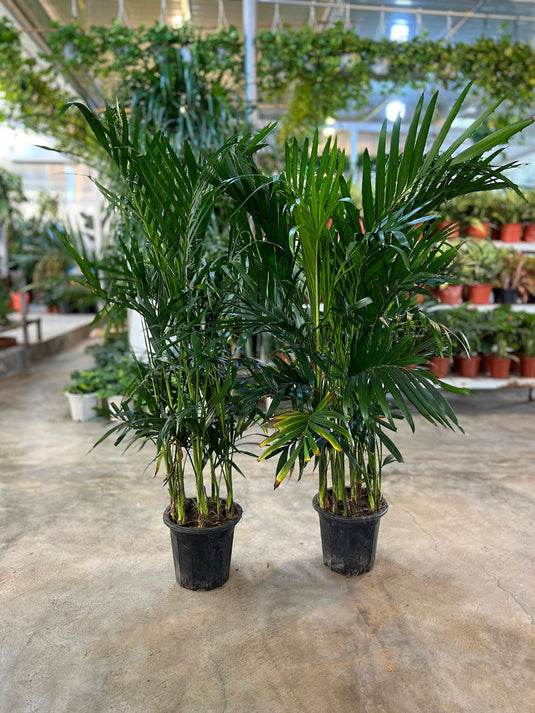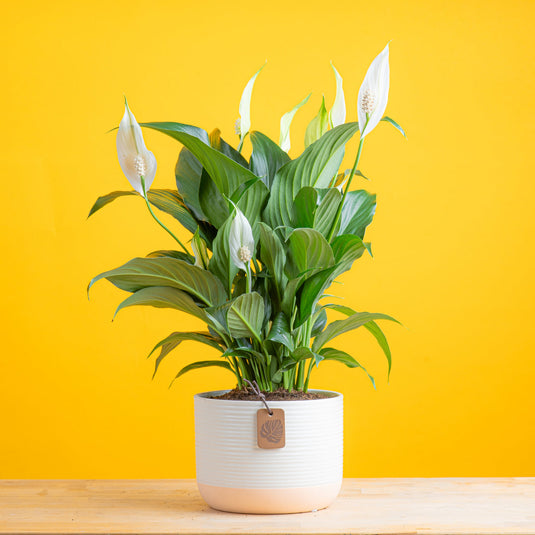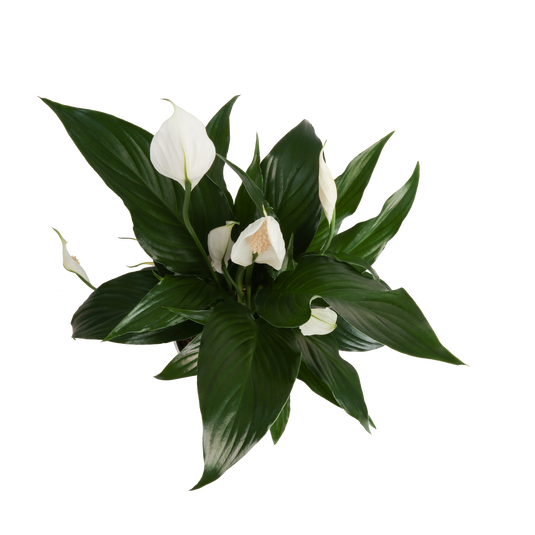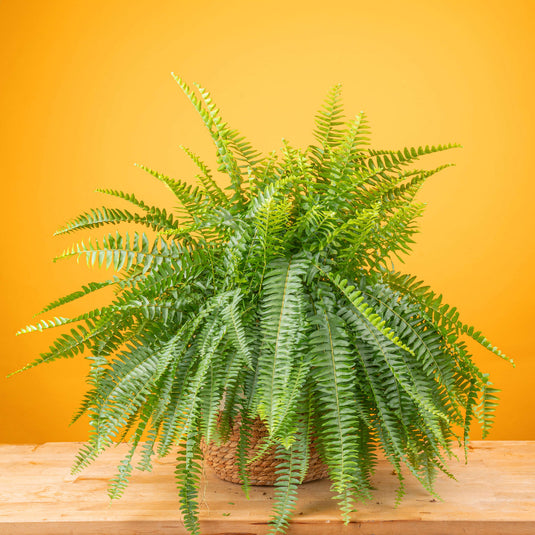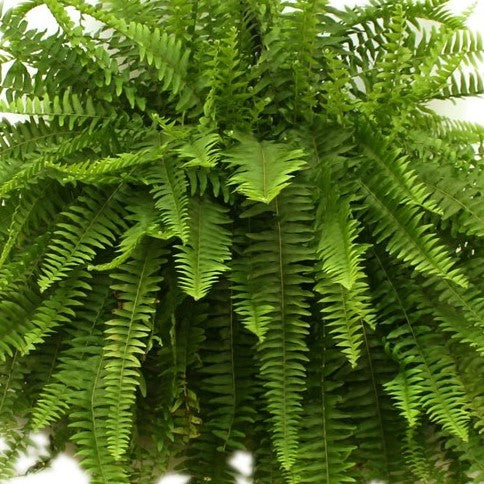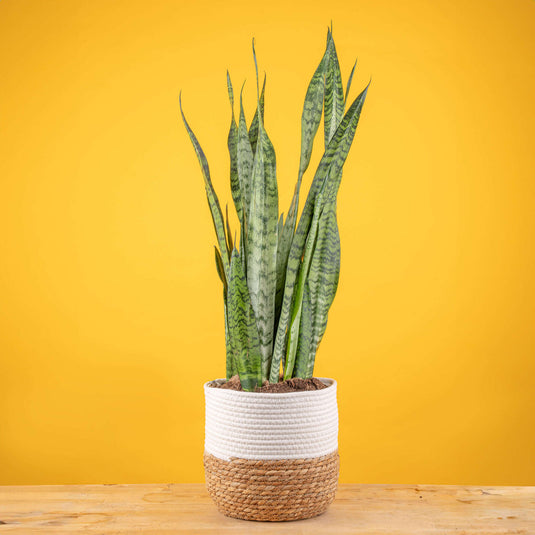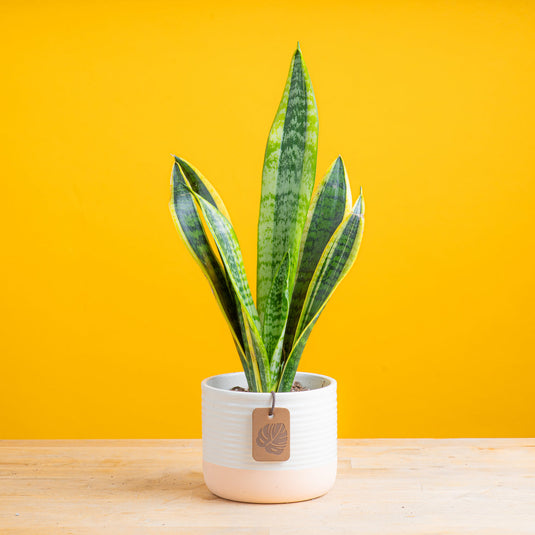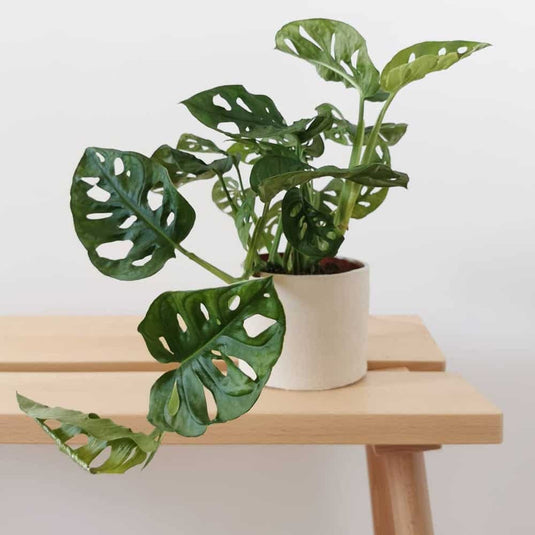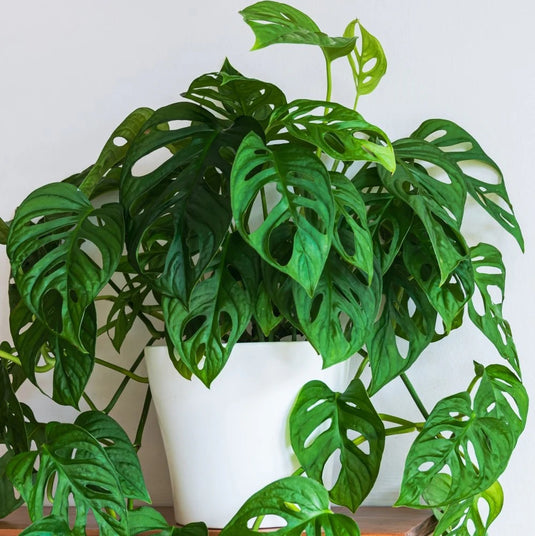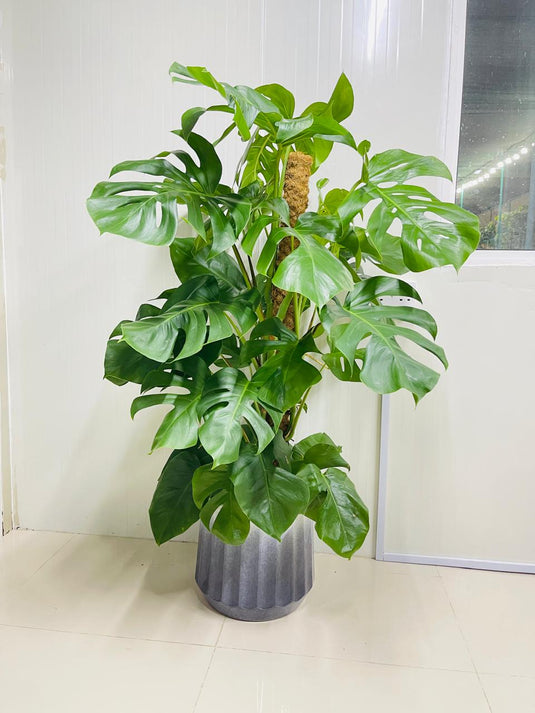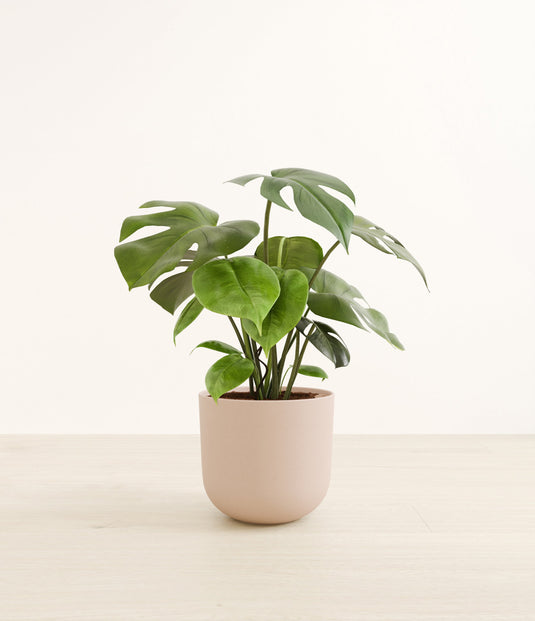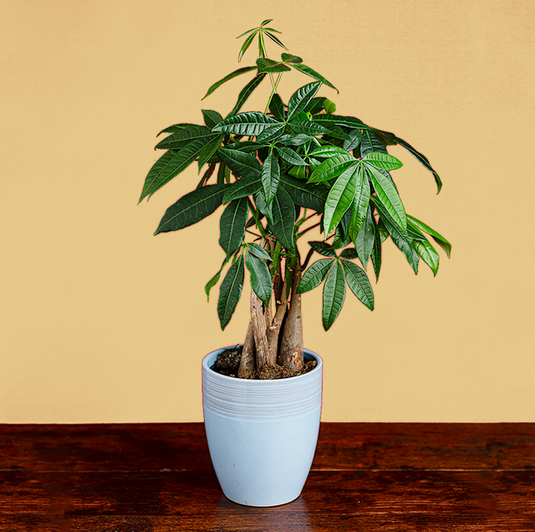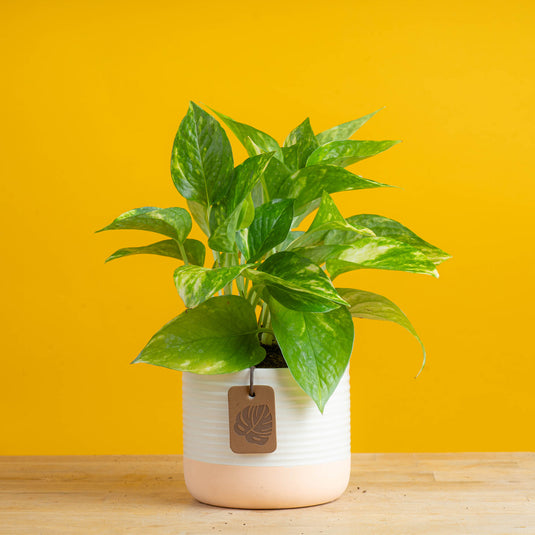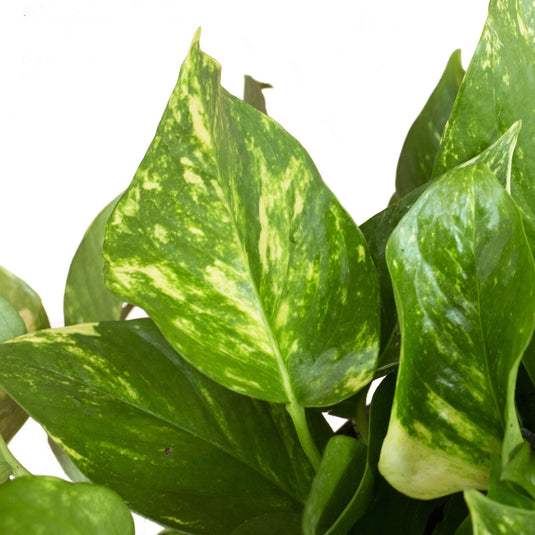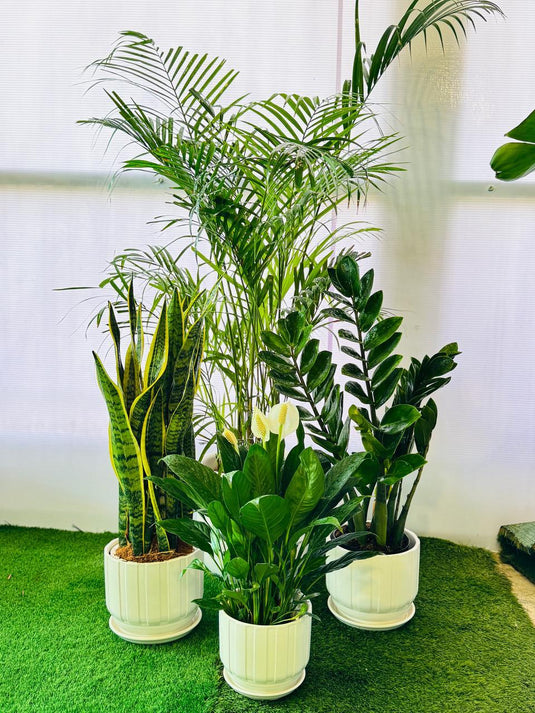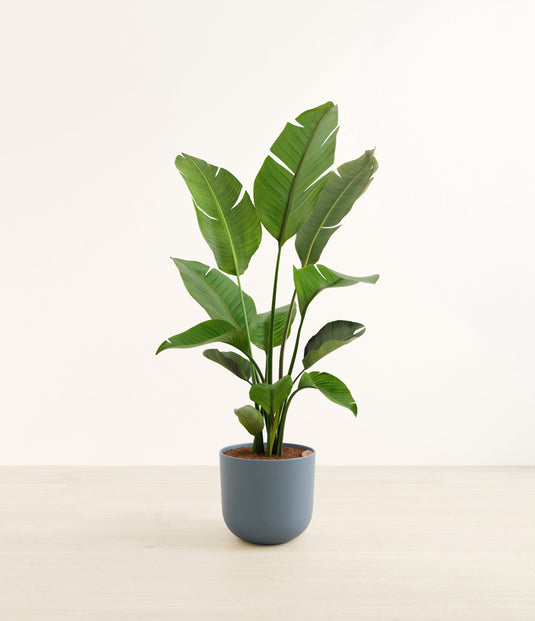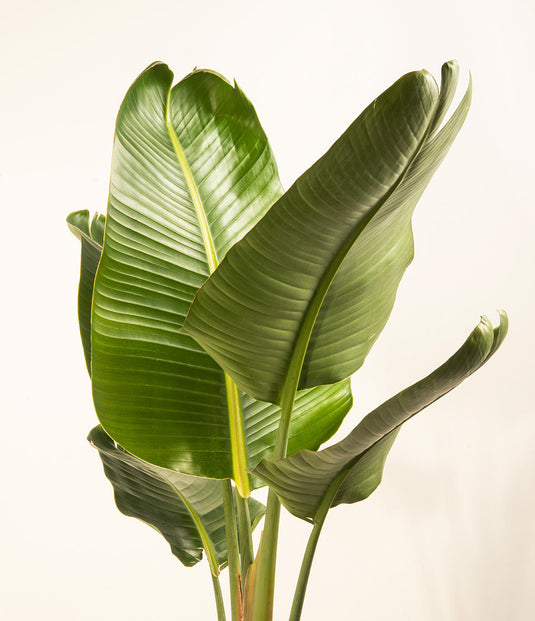Swiss Cheese Vine
- Healthy Arrival Guarantee
- Free Plant Care Consultation
- Safe & Secure Payment
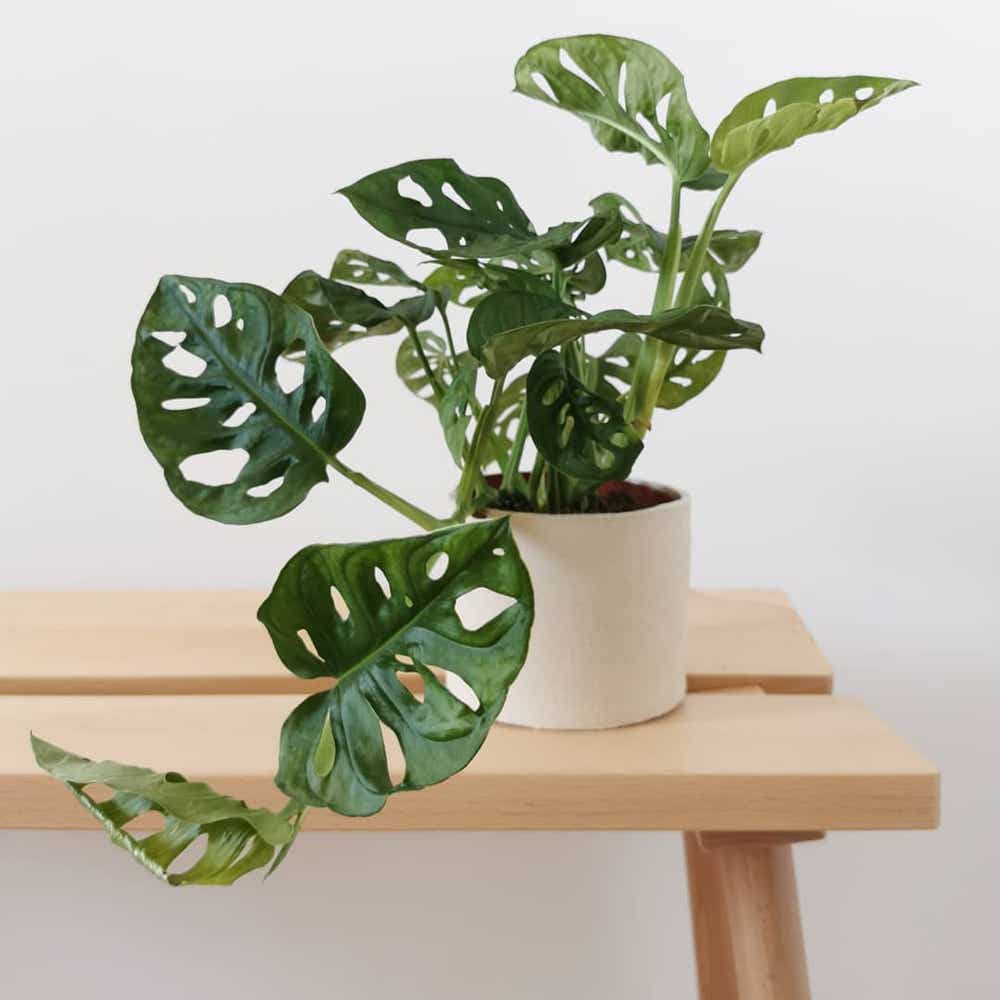
We will send you a notification as soon as this product is available again.
-
Estimated delivery: Mar 03 - Mar 07
-
Free return within 7 days of purchase.
Plant Description
Swiss Cheese Vine (Monstera adansonii) is a tropical plant known for its unique perforated leaves, commonly grown as an ornamental houseplant due to its distinctive appearance. The global market for indoor houseplants, including Swiss Cheese Vine, is expected to reach $5.8 billion by 2030.
Swiss Cheese vine top 5 Benefits for a Healthier Home Environment
1. Air Purification
Swiss Cheese Vine has been shown to improve indoor air quality by removing toxins such as formaldehyde, according to a NASA Clean Air Study.
2. Aesthetic Appeal
Its unique, perforated leaves make it a popular choice for interior design, adding a natural, modern touch to living spaces.
3. Low Maintenance
According to plant experts, the Swiss Cheese Vine is relatively easy to care for, requiring minimal water and indirect sunlight, making it ideal for beginners.
4. Stress Reduction
Studies suggest that indoor plants, like the Swiss Cheese Vine, can reduce stress and improve mental health by providing a calming environment.
5. Boosts Humidity
This plant can help maintain indoor humidity levels, which is beneficial for skin and respiratory health, especially in drier climates.
Disadvantages
- Swiss Cheese Vine requires sufficient space to thrive and grow fully.
- Regular trimming is needed to maintain its aesthetic appeal.
- While low maintenance, overwatering can lead to root rot.
- It requires indirect sunlight, limiting placement options in some homes.
- This plant may cause mild irritation if ingested by pets.
Frequently Asked Questions
1. Is the Swiss Cheese Vine suitable for small apartments?
Yes, but regular pruning is necessary to keep its growth under control. Without pruning, it can take up too much space, making it less ideal for tight spaces.
2. Does this plant improve air quality?
Yes, studies have shown that it helps filter out toxins like formaldehyde. This makes it beneficial for improving overall air quality in indoor environments.
3. Can I grow Swiss Cheese Vine in low light?
Yes, but it thrives better in bright, indirect sunlight. While it can tolerate low light, insufficient light may slow down its growth and result in fewer leaves.
4. Is Swiss Cheese Vine safe for pets?
No, it is mildly toxic to pets if ingested. While symptoms like irritation or stomach upset are usually not severe, it’s best to keep the plant out of reach of pets.
5. Is Swiss Cheese Vine difficult to maintain?
No, it is relatively low maintenance, requiring only occasional watering and indirect sunlight. Its care routine is simple, making it a good choice for beginners.
Final Verdict: Should I Buy Swiss Cheese Vine?
Yes, Swiss Cheese Vine is a great addition to any home, particularly for plant enthusiasts looking for an easy-to-maintain and visually appealing plant.
Plant Care
Watering
Water your plant once a week or when the soil starts to feel slightly dry on the surface. Keep the soil consistently moist, but be careful not to overwater, as this can cause brown spots and leaf drop. If the leaves become curly or dry, it's a sign that the plant needs water. It's best to water your plant in the early morning or late evening when the temperatures are cooler. Always check the soil before watering.
Light
Provide bright indoor light or indirect sunlight for about 6 to 8 hours a day.
Temperature
Maintain temperatures between 18°C and 24°C. Avoid exposing the plant to drafts, as these can cause undesirable temperature fluctuations. Mist the plant occasionally, about twice a week, to help maintain optimal humidity levels.
Fertilizer
Apply liquid fertiliser every 15 days when the plant is actively growing. For best results, use Folikraft ready-to-use Indoor Plant Food.
What Our Clients Say About Us
As a House se Manager in prestigious property in Dubai HILLS ESTATE, I would Highly recommended My Plants - Landscaping Services. All the team were amazing and hardworking. They are expert that achieved coordination and best feedback results to any projects that my Client wish and job order done. Appreciated. Thank you.
I ordered a 2m bird of paradise on their website with a pot. The price was much more reasonable than elsewhere, so I gave it a try. Ordered at 9pm on a Thursday night, delivered at 3pm the next day. The plant arrived bigger than I expected, replanted in its pot with brand new potting soil, incredible! The black pot is a perfect match for my home and really looks high-quality. Thanks again!
Good plants, they came over to my place to pot them and clean them, prices are good also, thank you Kashif for improving my experience and your top customer service.

